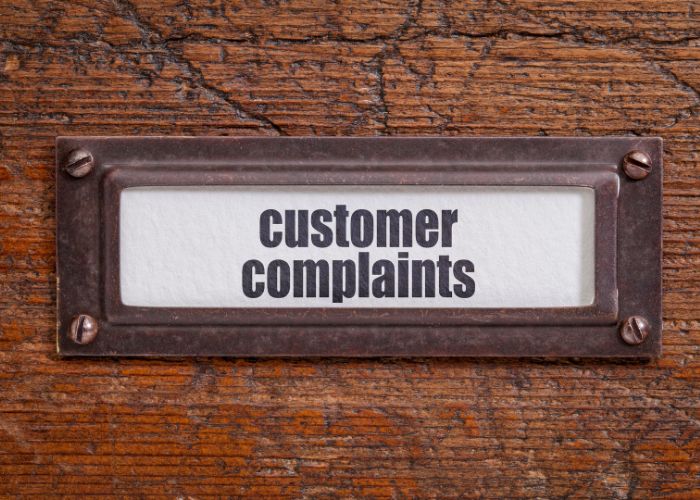In the modern business world, the success of a business is not only measured by the number of new customers it gains, but also from its ability to retain and satisfy its existing customers. The stable and long-term relationship with the customers is the core of the success of a business, as customer loyalty and satisfaction create a strong foundation for growth and progressive success. One of the critical aspects in ensuring this long-term relationship is effective customer complaint management. Complaints are a normal and inevitable part of doing business and handling them skillfully is key to achieving positive results.
Beyond simply solving problems, the flexible and courteous attitude towards the difficulties faced by customers strengthens their trust and their commitment to the business. We will take a closer look at the importance of complaint management and the strategies that can be implemented to create a positive climate that will strengthen the relationship between the business and its customers.
The Value of Customer Communication
In every business, communication with customers is a foundation pillar for maintaining a healthy relationship. The practice of complaints, despite its initial negative aspect, is an integral part of business activity. Whenever a customer has a negative experience or is disappointed with a business's service or product, he has the right to express his grievances.
Some businesses may see these complaints as a threat to their image. However, rather than being treated as a nuisance, complaining customers should be treated as an opportunity for improvement and development. Through the analysis of complaints, a business can recognize its potential weaknesses and work towards its improvement.
In total, maintaining an open channel of communication with customers and handling their complaints with skill and courtesy are essential factors in maintaining a positive business image and achieving long-term and constructive customer relationships.

The Role of Active Customer Involvement
The active participation of customers is a key element in the process of improvement and development of a business. In addition, it can enhance a sense of participation and objectivity, offering a framework for open and transparent collaboration between the business and its customers.
Feedback mechanisms are an important tool for encouraging active customer participation. Using customer satisfaction questionnaires can provide valuable data about their needs and preferences, as well as possible areas of improvement. In addition, creating discussion groups can provide an environment where customers can openly express their opinions and ideas for improving products and services.
Customer participation in these mechanisms not only provides valuable information, but also enhances their sense of active participation and commitment to the business. This, from their side, it can lead to a more positive shopping experience and a greater endorsement of the business by the customers themselves. In total, the active participation of customers is a critical factor in formulating a successful improvement and development strategy in the field of business.
The Complaints Handling Strategy
Complaints management is a critical stage in business activity and requires attention, dedication and commitment on the part of the business. The first and foremost step in this process is to respond to the customer's complaint with respect and understanding.
Active listening is critical at this stage. The listener must be willing to listen to the customer's concerns, to understand them and express his sincere support. It is important that the customer feels that their voice is heard and that their concerns are taken seriously.
After hearing the complaints, it is necessary for the business to take immediate action to resolve the problem. A quick reaction and a willingness to act instills confidence in customers and reduces the risk of worsening the situation.
In total, the complaint handling strategy involves active listening, immediate action and continuous communication with customers. This approach not only solves customer problems, but it shapes and reinforces a positive image for the business, thus promoting trust and certification.

Strengthening Prevention with Data Collection
Beyond immediate problem solving, the business must also focus on preventing their recurrence in the future. Collecting systematic information from customer observations is an effective tool for identifying potential weaknesses and adopting appropriate action measures.
Systematically collecting data on customer experiences can provide valuable insight into detecting any problem areas. This may include analyzing the frequency and nature of complaints received, as well as examining trends in customer preferences.
By highlighting possible weaknesses or failures, the company can take the necessary preventive measures. This may include reviewing procedures, improving staff training, or even the adjustment of the products or services provided.
In addition, continuous monitoring and analysis of data can help the business remain flexible and adaptable in an ever-evolving market, thereby enhancing its ability to offer high quality products and services to its customers.
Conclusion
Complaints management is critical to maintaining a positive image and gaining new customers. Being able to react and solve problems is a sign of dedication to providing excellent customer service.
By creating a business culture that emphasizes collaboration and mutual influence, firms can differentiate themselves in the market. Customers appreciate businesses that listen and respond to their needs with sensitivity and dedication.
In the dynamic world of modern entrepreneurship, continuous development and learning is essential for success and competitiveness. Constantly adapting to market changes and striving for improvement are crucial to the success of a business in the long term. Therefore, continuous commitment to responding to customer needs and concerns is a critical element of successful business.
Read also:
The 13 Most Successful Customer Rewards Programs
11 Marketing Ideas For Property Management
Follow us on Facebook, Linkedin and Instagram for more tips and information about the online presence of your business.









